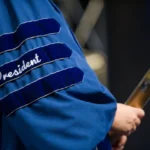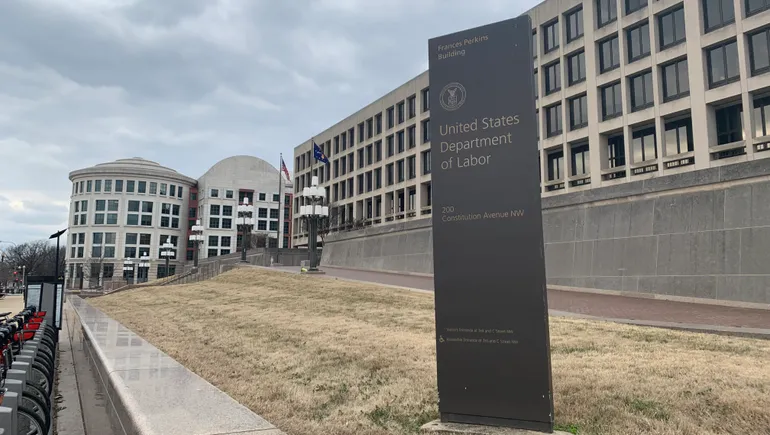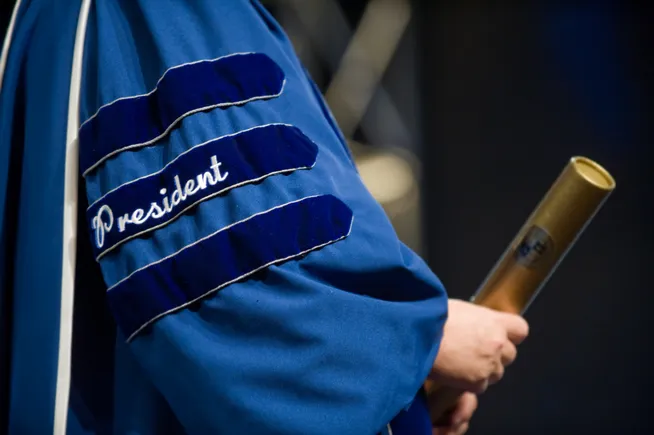Federal judges questioned Wednesday whether the U.S. Department of Labor’s salary basis test for determining overtime pay eligibility under the Fair Labor Standards Act exceeds the statutory authority delegated to the agency by Congress.
During oral arguments before the 5th U.S. Circuit Court of Appeals in Mayfield v. U.S. Department of Labor, the three-judge panel repeatedly asked Courtney Dixon, counsel for the government, to identify where in the FLSA’s provisions Congress explicitly allowed DOL to consider salary when classifying employees as exempt or nonexempt.
“The text of the statute doesn’t allude to or mention salary or compensation,” said Judge Cory Wilson.
Dixon said that because the FLSA’s statute specifies that the law’s exemption is “defined and delimited” by department regulations, DOL may incorporate a salary basis test as part of its inquiry. She said this stance was upheld in part by the 10th Circuit’s 1944 decision in Walling v. Yeakley.
“[Yeakley] looked exactly to these phrases, ‘define’ and ‘delimit,’ and it recognized not only does the Secretary have the authority to define these terms, but also [to] delimit — to move from the general to the more specific, to draw lines in this area,” Dixon said. “And Congress anticipated that.”
She also cited the U.S. Supreme Court’s 2007 decision in Long Island Care at Home, Ltd. v. Coke. In the case, which concerned a different set of FLSA exemptions, the court held that “Congress explicitly left gaps for the agency to fill by using the phrase ‘define and delimit’ that included the scope and definition of the general statutory terms,” Dixon said.
Responding to that line of argument, Judge Jennifer Walker Elrod said that Congress has explicitly mentioned salary requirements and how to calculate them when amending the FLSA. One recent example came in 2018, when Congress amended the FLSA to exempt professional baseball players who earn a weekly salary equal to the federal minimum wage for a 40-hour workweek.
“It seems like that really cuts against you that when they wanted to do minimum salaries, [Congress said] we can do minimum salaries,” Elrod said. “But here, there’s nothing indicating that that was going to be tied to this.”
Dixon said the baseball player exemption actually supports DOL’s authority to set a salary basis test, because “Congress has never disturbed the department’s approach, and the fact that Congress amended the FLSA against the department’s understanding and has itself found salary to be a relevant criterion that it has put into particular exemptions — it only supports the department.”

A view of the Supreme Court of the United States on Sept. 7, 2022, in Washington, D.C. Counsel for the plaintiffs in Mayfield cited the court’s landmark June 2024 decision ending Chevron deference in support of a challenge to the U.S. Department of Labor’s salary basis test for determining overtime pay eligibility.
Caroline Colvin/HR Dive
End of Chevron deference spurs reconsideration
The plaintiff in Mayfield challenged DOL’s 2019 overtime rule in part because the agency allegedly lacks the statutory authority to adopt a salary basis test. A Texas district court rejected that argument last year, holding that such a test met the framework for agency deference articulated by the Supreme Court in Chevron v. Natural Resources Defense Council and was not foreclosed by canons of statutory construction.
The Supreme Court has since overruled Chevron, holding in the landmark June decision Loper Bright Enterprises v. Raimondo that courts must exercise independent judgment in deciding whether an agency has acted within its statutory authority, rather than deferring to reasonable agency interpretations of ambiguous statutes.
Loper Bright shook the legal landscape, attorneys have since told HR Dive, and it prompted the 5th Circuit to request supplemental briefing from the parties in Mayfield on the question of what effect, if any, the end of Chevron deference had on the case.
Luke Wake, counsel for the plaintiffs, said that Loper Bright provides a standard of review that shows the text and structure of the FLSA “exempts based on duties, not dollars” and that DOL’s use of the salary basis test “arrogates Congress’ power as the lawmaker.” But the 5th Circuit appeared to push back on the notion that the text clearly prohibited consideration of factors other than an employee’s duties.
“I don’t know that I’m agreeing with you that the text of the statute is clear to the extent that it talks about bona fide employees [and] the authority of the agency to define and delimit what falls within this exception,” Wilson told Wake.
Wake cited the 2018 Supreme Court decision in Encino Motorcars, LLC v. Navarro, et. al., which he said “emphasizes that […] you don’t put a thumb on the scale of interpreting the FLSA exemptions to achieve any specific purpose. You have to give those exemptions a fair reading, and that’s precisely what we’re asking the court to do here.”
Dixon, meanwhile, said that the end of Chevron doctrine does not necessarily mean that DOL’s long-standing interpretation of the FLSA exemption language should be called into question.
“We think that Loper Bright confirms the department’s regulation in this case,” Dixon said. “This isn’t a traditional Chevron case in terms of there being ambiguous statutory language that we’re trying to understand if there was an implicit delegation of authority to the agency.”
Elrod and Wilson questioned the FLSA’s use of the terms “define” and “delimit” and whether the law’s provisions are so broad as to be unconstitutional. Specifically, the judges cited the nondelegation doctrine, which limits Congress’ ability to cede legislative power to other entities.
“If define and delimit is capacious enough to include this minimum salary rule under this exemption, don’t we have a nondelegation problem?” Wilson said. “Is it defensible that the agency can do whatever it wants to?”
Dixon denied that DOL claims it can set any salary level and said that the FLSA instead guides the agency in setting a salary level just as much as it guides the setting of a duties test. She also noted that DOL’s consideration of data and input from stakeholders also serves as a guide.
“Congress put in the statute this exemption […] while delegating to department authority to work out the details,” Dixon said. “That is exactly the kind of delegation that the Supreme Court identified in Loper Bright, a permissible one of an explicit delegation to the agency.”

A view of the John Minor Wisdom U.S. Court of Appeals Building, location of the 5th U.S. Circuit Court of Appeals, in New Orleans, La. The court held oral arguments in the U.S. Department of Labor’s salary basis test case on Aug. 7, 2024.
Rex_Wholster via Getty Images
Judge says nixing test could lead to ‘precarious position’
DOL’s use of a salary basis test goes as far back as 1938, according to the Congressional Research Service, and judges referred to this history in questioning the Mayfield plaintiffs.
Wilson asked Wake whether this fact might provide reason to grant deference to DOL in accordance with the Supreme Court’s 1944 precedent set in Skidmore v. Swift & Co., in which the court said judges could look to certain agency interpretations and opinions for guidance.
“Congress has amended the FLSA many times. They’ve never touched the minimum salary rule,” Wilson said. “So you’ve got something you’re asking us to upend that’s [86] years old.”
Wake said the agency’s long-standing interpretation of the FLSA as allowing for the use of a salary basis test doesn’t entitle it to deference under Skidmore because DOL’s interpretation is not persuasive. He said the Supreme Court rejected a similar interpretative approach toward the FLSA in its 1944 Addison v. Holly Hill Fruit Products, Inc. decision, which concerned a department exemption that was based on the geographical scope of work performed.
“The agency is doing the same thing here,” Wake said. “As a matter of essentially administrative convenience, they’re using minimum salary as a sort of screening mechanism to get at the sort of employees who are actually performing the right duties. But minimum salary rules are not a substitute for examining the employees’ duties.”
But Wilson noted that the FLSA’s exemption also does not mention the term “duties” and instead refers only to whether employees work in an executive, administrative or professional “capacity.”
The court also considered the proposition that a ruling in favor of the Mayfield plaintiffs would create a circuit split on the issue; “You’d put us in a precarious position, wouldn’t you?” Elrod asked Wake.
Wake responded that while such a decision would create a circuit split, the issue is timely given that DOL recently published a final rule that raised the minimum salary threshold for overtime eligibility. The same rule would implement yet another increase beginning January 2025 and would automatically increase the threshold every three years thereafter.
“Our client has suffered a continuing injury,” Wake said. “The fact that [DOL] radically raised the salary requirements exacerbates the injury but it points to the fact, more importantly, that there are no limits on the agency. This is the nondelegation problem.”
#Chevron #doctrines #death #leads #5th #Circuit #DOLs #salary #test #overtime #eligibility #safe










